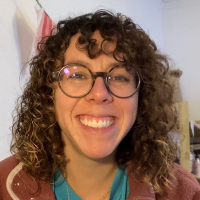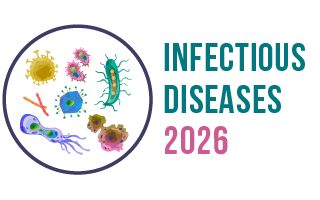4th International Conference on
Infectious Diseases
September 09-10, 2026 | Barcelona, Spain

Address: Avinguda Del Maresme 78 Ronda De Dalt Exit 15, 08940 Comella de Llobregat, Barcelona, Spain
Infectious Diseases 2026

ISGlobal, UK
Abstract:
Computer aided diagnosis (CAD) is a WHO recommended means to increase tuberculosis detection, with great potential to improve health equity in low- and middle-income countries. For people with HIV (PWHIV) more data is required to ascertain its current diagnostic performance in relation to WHO triage product profile targets (TPP) (>90% sensitivity >70% specificity).
We performed a retrospective diagnostic accuracy study combining data from three prospective cohort studies from March 2015 to November 2024. Participants were all PWHIV who had presented with presumptive tuberculosis. Their chest X-rays were interpreted by CAD4TB and qXR CAD programmes and diagnostic accuracy assessed using area under the receiver operating curves (AUC) against composite microbiological standards (MRS). Thresholds were identified according to WHO TPP and resultant sensitivities and specificities explored.
For the 648 enrolled participants, there was a TB prevalence of 16.67% by the MRS. CAD AUCs of 0.754 (0.702-0.806) for CAD4TB and 0.693 (0.635-0.751) for qXR. For CD4<200 a target sensitivity of 90% resulted in a specificity of 26.4% (17.6-27.0) for CAD4TB and 20.7% (12.7-30.7) for qXR. This was substantially lower than the specificity attainted for the total study population of 39.6% (35.3-44.1) and 26.9% (23.0-31.0) for CAD4TB and qXR respectively. Subgroup analysis by age, sex and country revealed no statistically significant differences in AUC.
CAD’s performance in PWHIV is markedly lower than WHO targets for a triage test. Analysis by CD4 count categories indicates that CAD algorithms perform more poorly for participants with CD4<200, and this is likely to have implications for clinical decision-makers
Biography:
Madeleine Bell has completed her masters in Global health from ISGlobal-Universitat de Barcelona following on from her medical degree at Barts & The London Medical School. She is currently working in Emergency Medicine in Bristol, spending time in Kenya working as part of a heath partnership in Nanyuki on antimicrobial resistance. Her further research interests include planetary and migrant health.
